Muharram in Bahrain: A history of systematic anti-Shia persecution by state
By Sondoss Al Asaad
Over the past decade, Bahraini Shias have faced systematic persecution from the ruling establishment, but that hasn’t deterred them from commemorating Muharram with zeal.
Since the 19th century, specifically in the capital Manama, Ashura has been a key religious-political event for the US embassy, as revealed in documents leaked by WikiLeaks in 2005.
The US embassy in Manama, in Muharram, collects information for the US military-industrial complex, such as the number of mourners, and the content of speeches, which bears testimony that Ashura in Bahrain for Washington is linked to America’s sinister activities in the Persian Gulf.
Manama remains the hub of Ashura commemorations in Bahrain, attracting a huge number of mourners every year, even from the Sunni sect, apart from foreigners working in the Arab country.
The capital’s commemorations have also been a center for the emergence of various political movements in support of the Palestinian cause, an anti-Ba’athist movement led by Martyr Sayyed Muhammad Baqir al-Sadr in Iraq as well as the Islamic Revolution led by Imam Khomeini.
Even when the socialist and progressive tide swept in, Manama was an operative political hub.
Muharram mourning processions start late and continue until the morning. Black-clad mourners gather in the dark alleys of Manama, women stand in rows on the roadside, and political slogans that criticize the regime policies are heard everywhere,
In recent years, Muharram processions have been incomplete without mourners of Imam Hussain (AS) condemning the Bahraini regime’s normalization with the Israeli regime.
Manama is also the place where Bahrainis of Persian origin practice their rituals, known as ‘A’ajam Ma’tam’, which is considered a socio-religious institution in the country’s capital.
Commemorating the martyrdom of Imam Hussain (AS), his family and companions, however, hasn’t come without a cost for Bahraini Shias.
Since 2011, the authorities have spared no effort to harass mourners. They have summoned clerics, preachers, poets, eulogists and mourners, and arrested them on ridiculous charges.
The charges include accusing Yazid of killing Hussain (AS), accusing Harmala of killing Ali Asghar (AS), accusing Yazid of withholding water from Imam Hussain’s (AS) camp, etc.
During interrogation, one of the preachers was told: “When you talk about the martyrdom of Hussain, you are inciting the youth to confront the authority to obtain martyrdom!”
Commemorating the martyrdom of Imam Hussain (AS) is “incitement to hate the regime.”
What the authorities want from the people is unflinching allegiance, without realizing that these steadfast people – like their Imam (AS) – will not compromise on their principles.
During the COVID-19 pandemic, stringent security restrictions were imposed on mourners across the country, as authorities relentlessly tried to prevent Muharram-related events.
This year, like in previous years, authorities carried out a vicious campaign by targeting Ashura manifestations (flags, placards, banners, etc.) two weeks before the start of Muharram.
The values of “religious tolerance” in Bahrain have hit an all-time low as local Shias are not allowed to practice their religion freely while Zionist colonial settlers are allowed to freely worship in a synagogue located in the heart of the capital, reopened after the normalization.
In the same context, the administration of Jau Prison has prevented political detainees from holding Ashura ceremonials, according to Bahrain’s top opposition bloc Al-Wefaq.
The Baharna (colloquially Bahrain’s Shiite) have responded to this repression with massive commemorations, chanting their favorite slogan: “Against your enemies’ will [O Imam Hussain], we raise your flag,” in protest against a recent statement by the Minister of Interior, Rashid bin Abdullah Al Khalifa, in which he stated that Bahrain “is not a destination for religious tourism, nor there is a need for eulogists from abroad.”
Bahrain’s top religious authority, Ayatollah Sheikh Isa Qassim, had previously described the targeting of Ashura commemorations in Bahrain as “a war against Imam Hussain (AS).”
Bahrainis understand Rashid bin Abdullah’s divisive policies, as he employs harassment and threats against Shias to change the Islamic character of Manama and promote Zionism.
This threat exposes the fake slogans of openness and peaceful coexistence claimed by the Bahraini authorities in international forums. The country’s interior minister has long sought to portray Ashura as an opportunity to declare war against the “others”.
This is the line of thought he inherited from Sir Charles Belgrave, an advisor to the government of Bahrain, who used to take military measures for Ashura. At that time in the 1950s, when tensions flared up in Manama, the National Union Commission was established.
The political committee made up of Sunni and Shiite members, united tens of thousands of citizens. Belgrave expressed his strong dissatisfaction with the unification of Bahrainis.
He wanted Ashura to remain within its religious framework without any political context, but miserably failed, just as authorities today have failed to impose their controls on Ashura.
During the 1990s uprising, authorities arrested Sheikh Ali al-Na’jjas (he was blind) and tortured him to death for daring to criticize its oppressive policies on Ashura.
That uprising, which was led by Sheikh Abd al-Amir al-Jamri, was known for its opposition discourses.
Belgrave did not target religious rituals, but the authorities in Manama today do that and offer unconvincing justifications in an attempt to erase what cannot be erased, as Sayyedah Zainab (AS) vowed: “Plan your stratagem, strive to your maximum, and put your best efforts but, by Allah, neither will you be able to erase our memory [from the people's minds].”
Sondoss Al Asaad is a Lebanese journalist and a keen observer of Bahraini politics.
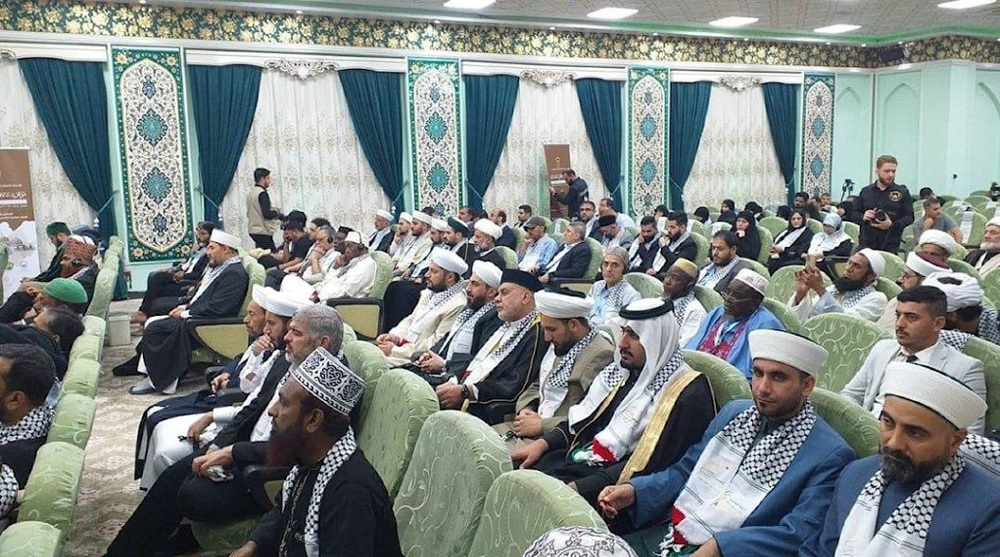
Palestine core issue in anti-hegemonic struggle, Karbala conference told
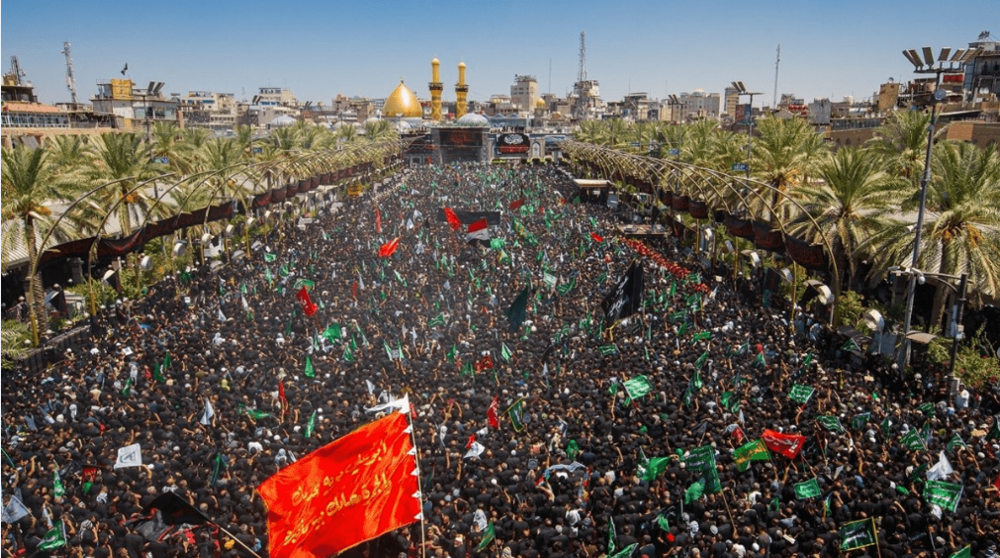
Iranian FM: Arba’een march to Karbala angers, scares enemies
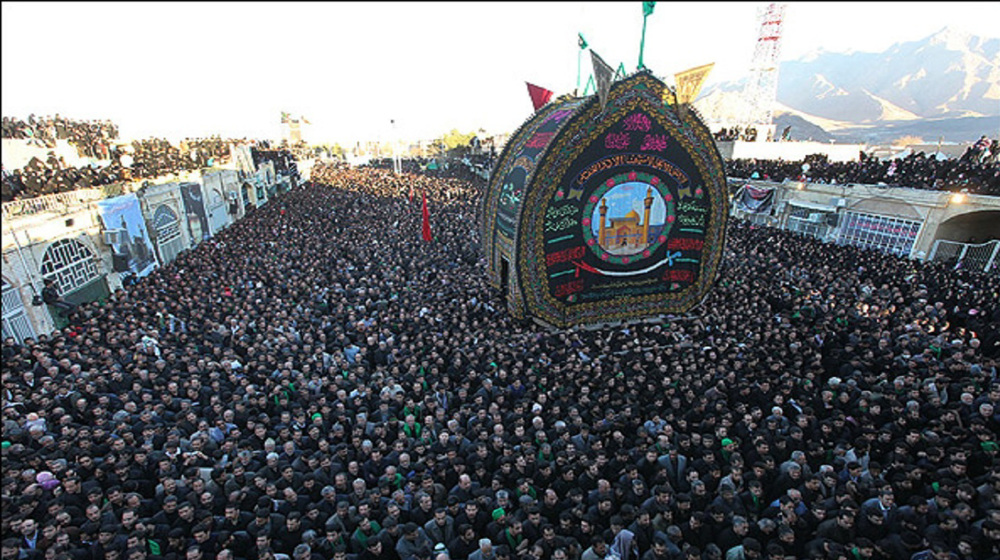
Ashura in Yazd
US special envoy in Kiev amid war of words between Trump, Zelensky
Hamas says ready to free all Israeli captives at once in phase two of truce
Israel kills one, injures two in southern Lebanon: Media
‘Colonial powers’ have no right to determine fate of Palestine: Qalibaf
Explainer: Why are MK-84 2,000-lb bombs approved by Trump for Israel so deadly?
President Pezeshkian: Iran, Qatar opening new avenues for cooperation
VIDEO | Displaced return home despite destruction
IRGC unveils new homegrown smart missiles, drones drill


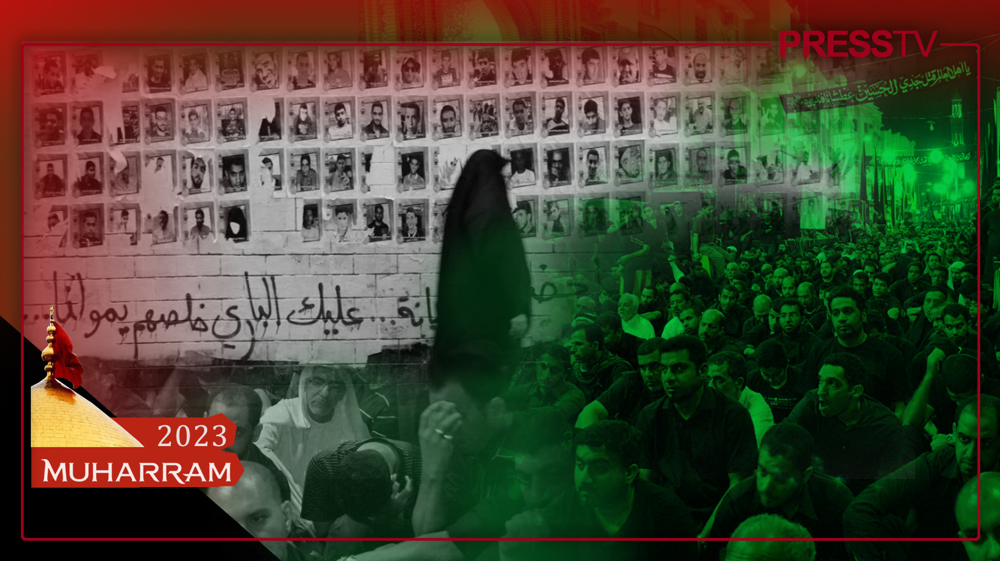



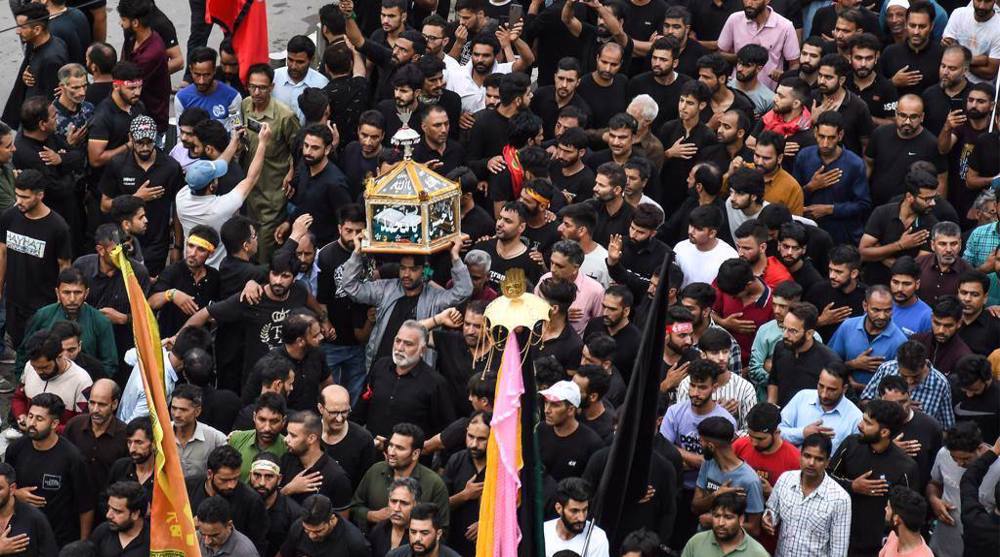


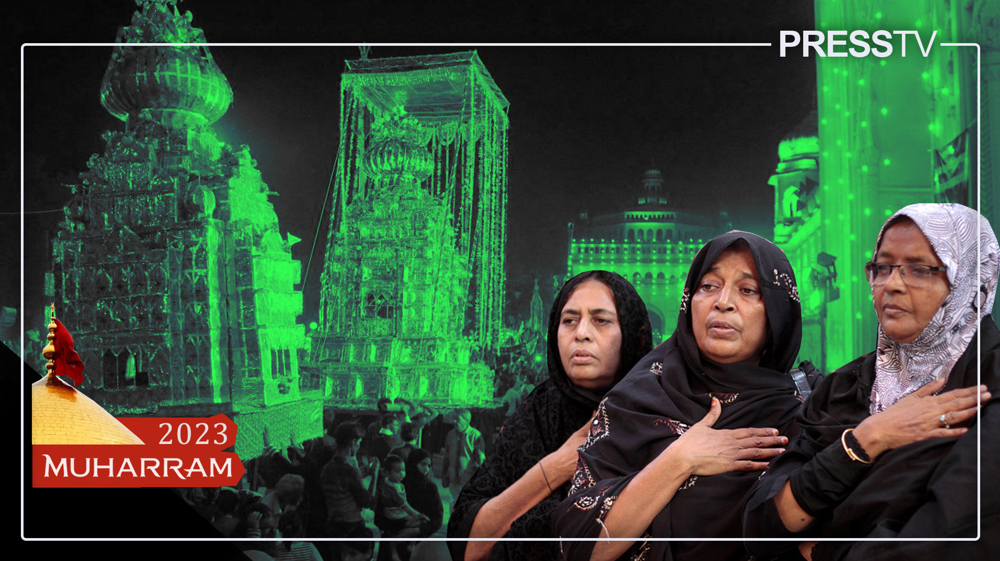
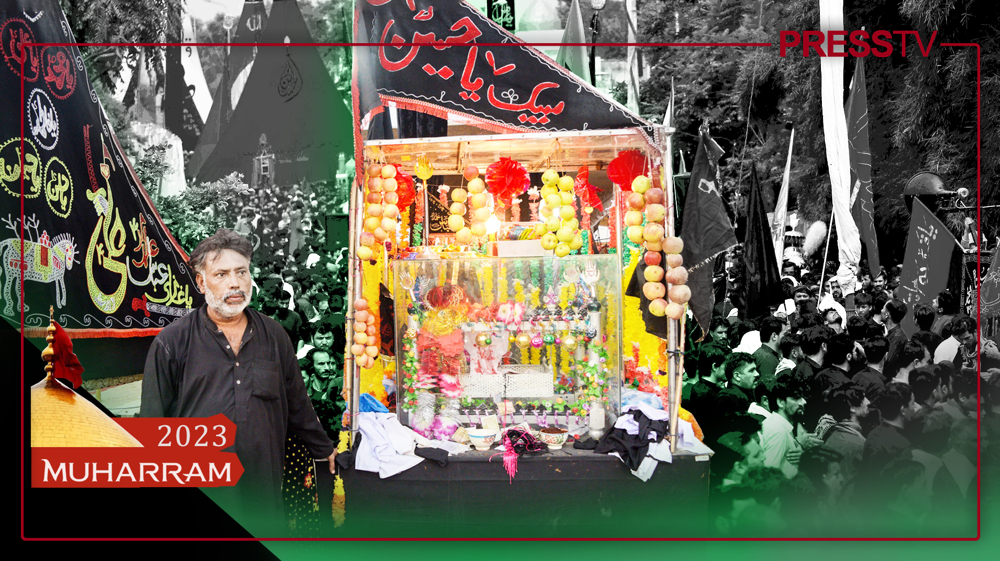

 This makes it easy to access the Press TV website
This makes it easy to access the Press TV website